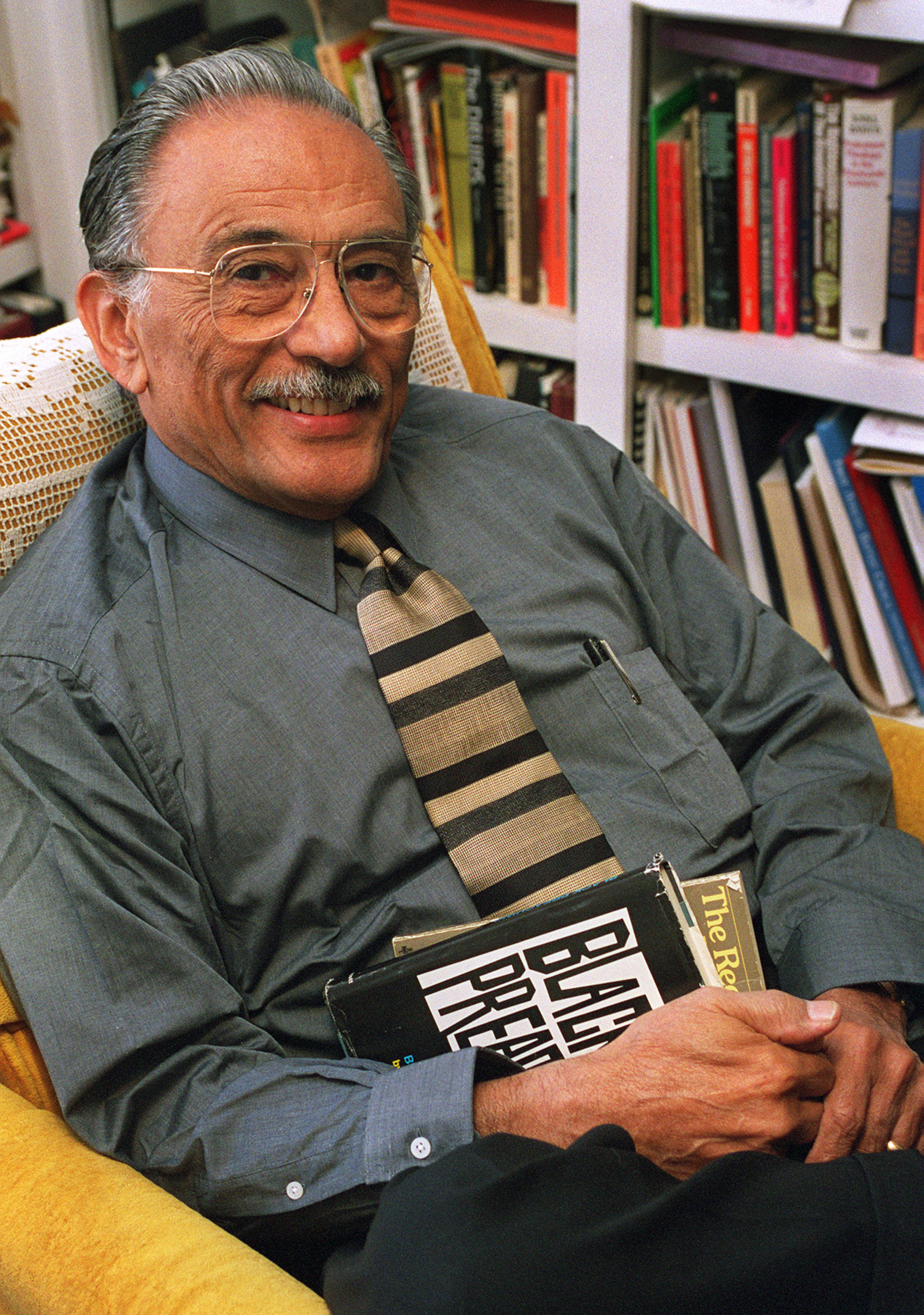Hooping it up: Traditional black preaching - a blend of poetry, parables and pyrotechnics - is on the wane

Published Nov. 15, 1997
The Rev. Jasper Williams sounds like he is in trouble.
As he sweats his way toward the conclusion of a recent Sunday morning sermon, the 55-year-old pastor of Salem Baptist Church in Atlanta suddenly gasps for air. Then he unleashes a piercing scream. Finally, Williams punctuates each statement by sucking air, as if he were having an asthma attack.
No need to call 911, though. Williams isn't hurting. He's "hooping."
"PAUL SAID I GOTTA THORN IN MY FLESH, BUT THE THORN STILL STAYED THERE," Williams shouted as his cheering congregation stood. "YOU CAN'T HURRY GAWWWD. YOU JUST GOT TO WAIT ON HIM. DO I HAVE A WITNESS HERE? I'M TRYING TO QUIT. HOLD ME JESUS. I WANT TO STOP SO BAD, BUT I GOT ONE MORE THING I JUST GOTTA TELL YOU. . . ."
Remember this scene while you can. Because you may not hear preaching like this much more.
Hooping, traditional black preaching that relies on voice inflection and vivid storytelling, is fading. Preachers are discovering that as black congregations become more educated and affluent, they don't want that old-time religion anymore.
"Some churches will run a hooper out," said Gerald Durley, pastor of Providence Baptist Church in Atlanta. "They'll tell you, 'If we want a clown, we'll go to Barnum & Bailey.' "
Academicians are describing hooping as a misunderstood art form, a blend of poetry, parables and pyrotechnics.
The power is readily seen in the muscular oratory of Martin Luther King Jr. and the rhythmical phrasing of Jesse Jackson.

And now hooping is getting attention from an unexpected source ---white pastors. National television networks like Trinity Broadcasting are full of fiery white pastors who are trying to prove that white men can hoop.
"It's like everybody black want to be white and everybody white want to be black," Williams said.
A new wave of preachers, "Word Preachers," is on the rise in the black community, focusing on a style of preaching that at times seems like a legal argument. Each point is backed by a battery of Scriptures. Pulpit fireworks are shunned. The Rev. Woodrow Walker, pastor of Abundant Life Church in Lithonia, embodies this new approach. Walker was a Pentecostal preacher who could routinely drive an audience to a frenzy by hooping. Eventually, he stopped when he realized he was preaching to perform, not to teach.
"I didn't feel like I did a good job unless there was a certain response from the congregation," he said. "It was my need that I was trying to fulfill rather than the needs of the people."
Walker's sermons are now conversational, heavy on biblical teaching, light on fireworks. His new style did not initially go over well. Worse was one post-sermon comment he received after visiting one church. "That's a real nice lecture," a man told Walker. "When are you going to preach?" The absence of biblical emphasis is one of the chief criticism of hooping. Many people complain they could never learn the Bible in a hooping church because the pastor spent most of his sermon shouting, not teaching.
Henry Mitchell disagrees.
Mitchell, a theologian, has written seven books on black preaching. He said most hoopers combined sound biblical teaching and emotion in their sermons. But many black people dismiss hooping, he thinks, because they have been brainwashed by Western culture into believing that fervent emotion and religion do not mix.
"People come up with this white (stuff) that emotion is bad," Mitchell said. "You know what it goes back to? It goes all the way back to the Stoics who saw a whole lot of bad religion and then decided that the flesh was evil. It messed the Christian faith up."
The Rev. Tim McDonald, head of the Concerned Black Clergy, said the disdain for hooping has transformed black worship. "People look at you funny if you say amen," he said. "Our churches are becoming much quieter and much whiter."
McDonald said that hooping grew out of the African storytelling tradition ---a storyteller and audience would engage in a call-and-response ritual. Others point toward slavery as the birth of the hoop. When slaves gathered for a worship service, they needed a release from despair. The hoop, the cathartic shouting between preacher and worshiper, provided that celebratory release.
Mitchell said that Word Preachers miss the value of catharsis in worship. Their sermons seldom reach people's emotions, the region where faith is born. "The Word approach is all intellectual," Mitchell said. "My problem isn't intellectual. My problem is, in most cases, emotion and intuition are not reached by facts."

That is what Nibs Stroupe, a white Presbyterian pastor, has discovered.
Stroupe is the pastor of Oakhurst Presbyterian Church, a mixed congregation in Decatur. As more blacks joined his church, he incorporated elements of traditional black preaching into his sermons. He stopped using a typed manuscript. He started raising his voice, using his arms and hands. He found the experience refreshing.
"What you hear in the white tradition was that black folks were all emotion and no mind," Stroupe said. "What I've come to learn is that it's a whole different approach to faith."
Williams, who created a cassette of his favorite hooping sermons called "Hoopology 101," said after 50 years of preaching, fewer people want to hear that different approach to faith. But he refuses to abandon hooping.
“I think there is a danger of it becoming a lost art form,” Williams said. “But I’ll continue to hoop as long as there is a need for hooping. When I sense there isn’t a desire for it, I’ll leave it alone.”

